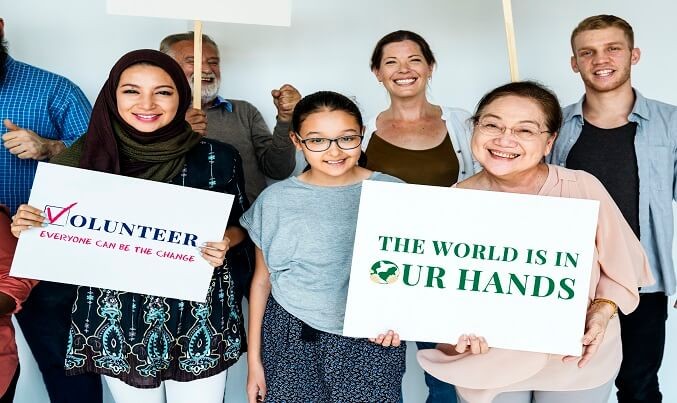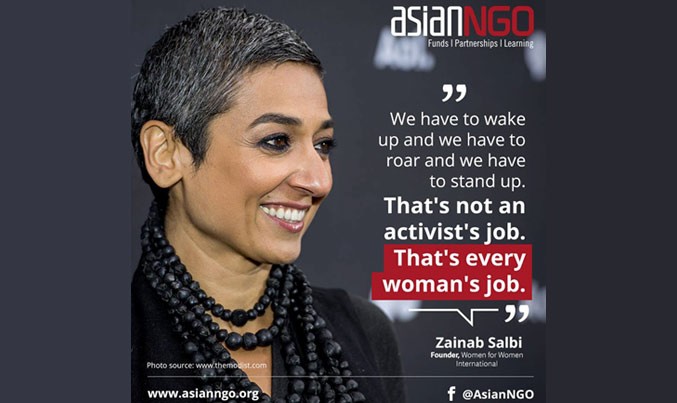DKT WomanCare is a step along the path of giving men and women complete control of their reproductive health.
DKT International has never shied away from controversy.
From its first-in-the-world ad for an abortion pill in India, to Indonesian ads linking Intra-Uterine Devices to sexual pleasure, DKT has been a pioneer in promoting contraception and reproductive health across the globe.
DKT International recently launched its DKT WomanCare website, a milestone in its journey of making reproductive health choices available to men and women—whenever, wherever.
WomanCare is the exclusive global distributor of Ipas Manual Vacuum Aspirator (MVA), surgical abortion technology, and Levoplant, a 3-year contraceptive implant. Other products are in the pipeline, and the idea is to use market forces to effect change.
The website is a virtual space where medical practitioners can directly contact WomanCare’s in-country distributors to purchase the products they are interested in. Future plans also involve building a consumer-facing side on the website, to provide online support to someone looking for an abortion, or safe contraception.
According to a 2017 study by the WHO and the Guttmacher Institute published in The Lancet, 45% of all abortions performed between 2010 and 2014 were unsafe. The scale of the problem is made more complex by under-reporting, as well as stringent regulations and anti-abortion lobbies across the world.
“In many countries, women are seeking abortion, but don’t know where to go. We might be able to provide that final link,” says True Overholt, marketing director, DKT WomanCare.
DKT International CEO Chris Purdy sees WomanCare as a natural evolution of their mission of “empowering women and men to take control of their reproductive destinies. DKT and WomanCare are slightly different channels within that mission.” (See Box for interview)
DKT International, with its various programs, is present in 24 countries. When Ipas looked for a partner to handle its global distribution, it was just the opportunity that DKT was looking for. In 2017, the organizations inked the deal that gave DKT WomanCare distributorship of their product in 100+ countries, including the United States.
While classic DKT programs are set up for depth in a project location, WomanCare is about breadth, and reach.
“We look at this through a supply-and-demand lens,” says Overholt. “In a lot of countries, we realized that there is an unmet need for the products. If we have to invest in selling a product, we have to tackle the supply side first.”
The unmet need is even quantified: a 2017 study published in The Lancet reported that unmet need for modern methods of contraception in the world’s 68 poorest countries was 21.6%, and the demand satisfied with modern methods was 67.9%[1].
WomanCare’s sales reflect that: 186,000 units of Ipad MVA were sold last year, and
the website is only the first among many plans including geographic and product portfolio expansion for WomanCare.
With their wide network, and a culture-sensitive topic like contraception, WomanCare has had to tailor strategies depending on the country they work in. And they’ve had precedence with DKT, who worked with small roadside shops to sell condoms in the Ghana countryside, and also bought a boat to supply products in flooded areas of the DR Congo!
However, there are a couple of key differences, says Overholt: current WomanCare products are sold to clinicians, not the end users.
“It’s a little tricky from the communications perspective,” says Overholt. “While we get a lot of face time with clinicians, the prevalence of IUD is very low. It may be because it’s not interesting for them, or the products they have seen have not been very good. We have to figure that into our communications.”
As with many commercial brands, Overholt says, WomanCare does not always focus on the brand, rather focusing on an aspirational lifestyle.
Also, because WomanCare is not on the ground the same way that DKT is, networking becomes critical, especially in the 75-odd countries where DKT is not present.
“For changing behaviour, you need to partner with civil society and other organizations to complete the supply chain. On the other hand, if you are a small NGO in Angola (say) trying to access quality healthcare, WomanCare can be a great partner for you,” says Purdy.
Another often-overlooked service that WomanCare brings to the table is market expansion, simply through awareness of products, says Overholt. “We’re effectively adding a sector in some of these places,” says Overholt.
With services in the countries across the health indices spectrum, WomanCare is also keen to transfer best health practices from one country to another. Overholt sees huge potential in the way that technology can be harnessed to promote choices and hopes that the portal will be able to help that woman who wants an abortion with a reliable and safe way to do so.
[1] Cahill, Niamh & Sonneveldt, Emily & Stover, John & Weinberger, Michelle & Williamson, Jessica & Wei, Chuchu & Brown, Win & Alkema, Leontine. (2017). Modern contraceptive use, unmet need, and demand satisfied among women of reproductive age who are married or in a union in the focus countries of the Family Planning 2020 initiative: A systematic analysis using the Family Planning Estimation Tool. The Lancet. 391. 10.1016/S0140-6736(17)33104-5.










